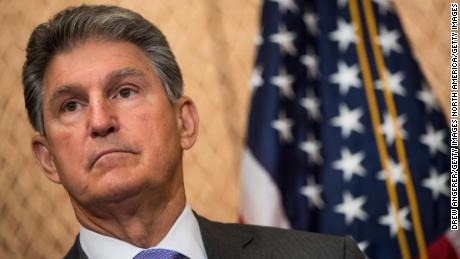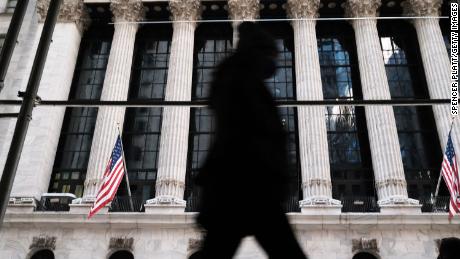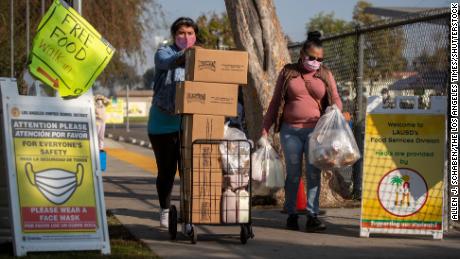Analysis: Here we go again– US could start losing jobs very soon
“The economy is going to get worse before it gets better,” Jason Furman, former Obama economic adviser, told CNN Business. “The number of people with jobs could easily fall in December and January.”
Although economists don’t expect mass layoffs like those in the spring, any disruption to the labor market recovery would be a cause for concern because the United States is still down nearly 10 million jobs since February.
“The vaccine will help the economy a lot in 2021 but we still have a very long, hard way to go—with more challenges before the improvements start,” said Furman, who is now a professor at Harvard University.
Travel, retail getting hit by the virus
The details of the jobs report provided evidence of how the worsening pandemic is derailing the recovery.
The unemployment rate ticked lower to 6.7%, but that was for the wrong reason: More workers left the labor force in November.
After a hiring boom this summer, the retail sector lost 35,000 jobs last month. The leisure and hospitality industry, the hardest-hit sector of the economy, added just 31,000 jobs. That marks a staggering slowdown from the 270,000 leisure and hospitality jobs added in October.
“There is a very good risk that payrolls fall outright in December as the spread of the virus intensifies and restrictions become more widespread, said Michael Pearce, US senior economist at Capital Economics.
Beyond the jobs report, other warning signs are flashing about the recovery.
“The recovery hasn’t quite stalled out, but it’s going to be weak as we head into the first quarter,” Ethan Harris, head of global economics at Bank of America, told CNN Business.
‘Stop fooling around’
Harris agrees that there is a “pretty good chance” hiring will soon turn negative — and said that may just be the jolt Congress needs.
“It would be a wake-up call to Washington to get moving on a fiscal package,” said Harris. “There is no outside force intervening telling Congress to stop fooling around and get to work.”
Normally, politicians would be under fire from financial markets. But that’s not the case right now as investors celebrate coronavirus vaccine breakthroughs that brighten the 2021 outlook.
“The markets are numb to those numbers,” said Danielle DiMartino Booth, CEO and chief strategist at Quill Intelligence.
Booth said that investors and Wall Street economists are squarely focused on June 2021, when vaccines could allow for a robust reopening of the economy. However, she added, “I don’t think they’re taking into account what can occur between now and then.”
The stakes couldn’t be higher for millions of Americans
Not only did Democratic leaders embrace the bipartisan plan, a stream of Republican lawmakers issued positive comments Thursday about a deal. Critically, Senate Majority Leader Mitch McConnell and House Speaker Nancy Pelosi held talks, raising hopes of a breakthrough.
“I’ve never been more hopeful that we will get a bill,” Republican Senator Lindsey Graham said.
Without Washington action, critical unemployment programs and other safety nets will soon expire.
“An extraordinary number of single mothers will be evicted if there isn’t an extension. I don’t think this is something that either party wants,” Booth said.
Double-dip recession fears
“Many contacts cited concerns over the recent pandemic wave, mandated restrictions (recent and prospective) and the looming expiration dates for unemployment benefits and for moratoriums on evictions and foreclosures,” the Beige Book said.
Economists at Jefferies called it “one of the most troubling Beige Books we have seen in a long time” and evidence that “risks of a double-dip are starting to increase.”
“A long, dark winter is ahead for many businesses before the sun rises with a vaccine in Q2,” Jefferies wrote in a note to clients Wednesday.
The CNN Business Recovery Dashboard of real-time indicators shows how parts of the economy are rolling over:
- Restaurant reservations on OpenTable are down by 68% from a year ago, compared with negative 14% in early September
- The number of airport travelers is two-thirds lower than a year ago
- Hotel occupancy has fallen by a third, versus a 19% drop in early September
- Small business work hours have shrunk 20% from pre-crisis levels
Of course, some parts of the US economy are doing quite well.
Yet the pandemic is accelerating the demise of physical stores — and those are the ones that employ the most workers. That means the hiring boom for seasonal retail workers may not materialize. Indeed, Friday’s jobs report showed a loss of retail jobs and a jump in warehousing employment.
“Brick-and-mortar is really going to suffer this holiday season,” said Harris, the Bank of America economist. “We’re likely to see a holiday season that looks okay from a sales perspective, but not from a salesperson perspective.”
“If we’re going to have a nice second wave of recovery,” Harris said, “you need both the vaccine and a fiscal package.”
That last part is up to Washington.
CNN’s Anneken Tappe and Lauren Fox contributed to this report.
![]()








